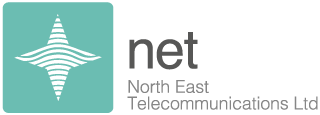Case Study: Crane Radio Systems – North Sea Offshore Operator
Background
An offshore operator in the North Sea was facing critical communication issues with Crane Radio Systems (CRS) installed on several of its platforms.
Multiple STOP CARDS had been submitted, citing “critically poor” radio communications, particularly on one of the assets. The client was juggling blind lifts with poor comms and found themselves in a situation where the radios were potentially impacting safety and productivity.
Following repeated offshore visits, the issue was traced to system-generated interference, not airborne signals. Its intermittent nature made it difficult to diagnose.
Eventually, the fault was isolated to a processor PCB within the crane-mounted CRS.
Resolving it required removing the system and testing it offsite, which left the crane without a functioning radio.
Based on these findings, the operator made a safety-led decision to replace all CRS units on affected platforms.
Key Challenges
- Intermittent interference disrupting communication during lifting operations
- CRS units had to be removed from cranes for testing, temporarily halting radio functionality
- Additional issues identified: incorrect channel alignment, low call volume, and poor ergonomics
Initial Inspection and Findings
In 2022, NET was brought in to inspect a CRS installation on one of the operator’s North Sea platforms.
A NET technician worked alongside the platform’s telecoms specialist and lead crane operator to survey the existing setup.
They uncovered several issues:
- Persistent interference
- Poor sound quality
- Poorly positioned control boxes
This inspection prompted the operator to proceed with replacing all CRS units across four platform cranes using NET’s solution.
Input from frontline staff helped ensure the new systems were better positioned for ease of use and maintenance.
Solution and Implementation
NET supplied four new CRS units for installation across the affected platforms.
Throughout 2023, NET’s team coordinated the replacements, prioritising system reliability and minimal disruption to operations.
Commissioning was carried out by NET, with ATEX inspectors and the operator’s electrical team providing final checks.
Crane operators were trained on-site, which helped ensure a smooth handover and greater confidence in their ongoing use.
Training and Handover
NET delivered hands-on training sessions to the platform crane operators.
This helped:
- Build confidence in day-to-day use
- Equip teams to troubleshoot minor issues independently.
- Reduce reliance on callouts or external support.
Outcome and Benefits
- Reliable Communication: Clear, hands-free two-way comms during crane ops improved overall safety
- Operator-Friendly Design: Better ergonomics and layout made the system easier to operate and maintain.
- System Integration: The CRS integrated seamlessly with the platform’s existing Hytera Tier III and VHF infrastructure
Conclusion
By replacing outdated radio systems with NET’s CRS, the offshore operator achieved a significant improvement in communication clarity, operator confidence, and overall safety.
This long-term fix not only resolved the original faults but delivered a more ergonomic and futureproof system aligned with operational needs.
Testimonials
“Upgrading to NET’s Crane Radio System has transformed how we work.
The reliability and clarity have made a big difference to safety during lifts.
NET’s training gave our team the confidence to manage the system and fix minor issues themselves, minimising downtime and improving efficiency.
The whole process was handled professionally, and the result speaks for itself.”
— Lead Crane Operator, North Sea Asset
